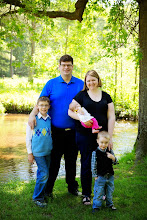 Last Tuesday, I asked those who read this blog to comment on my post and tell me where they were from. I also told my Twitter network about the blog post. Before the end of the school day, I had 9 comments from various places. It is now up to 14. Not too shabby for a quick shout-out blog post.
Last Tuesday, I asked those who read this blog to comment on my post and tell me where they were from. I also told my Twitter network about the blog post. Before the end of the school day, I had 9 comments from various places. It is now up to 14. Not too shabby for a quick shout-out blog post.Here is what this tells me. Slightly over a year ago, I decided that I ought to have a blog for my presentations, so that people had a site to go to when they had questions. This blog was created for the people in those sessions - all of whom were in Michigan. Of the 14 comments, how many were from Michigan? Two. How many of those Michiganders had been in my session? Zero. That's not to say that my original readers aren't still around, but it is intriguing to me how the readership of this blog has expanded.
Secondly, it tells me that my personal network of people has substantially grown. Several of the comments mentioned that they followed my blog in a reader, but others mentioned that they found me through Twitter. Very few teachers my age have networks outside of their own schools. It is definitely an advantage for me - and for the other teachers in my school, as I bring back everything that I learn!
Third, it is a humbling reality check. What we post - whether or not we think it has any impact - is being read by someone, somewhere. I've been thinking a lot about this lately. My psychology classes just completed an "online text" on a wiki. At first glance, I was so proud of them! In many ways, I still am, but they don't seem to understand that their audience is a global one. Four groups (that's 8 kids) blatantly plagiarized some/all of their wiki. How can we prove to students that people really are reading what they post - and that it could include the original author of the material? I'm still hashing out how I want to handle this with the next batch of kids - stay tuned for that.
+-+gagged.jpg) As I begin my Masters project, I am keenly aware that at no other point in time have we ever had such power in our networks. Equally, I am aware of the discrepancy between the learning styles needed for the mass collaboration era versus the industrial revolution-style training that is occuring in our schools. As we are helping our students prepare for their future, are we showing them the "Flat World" that Friedman spoke of - where knowledge is the new global currency? Or does it look more like this:
As I begin my Masters project, I am keenly aware that at no other point in time have we ever had such power in our networks. Equally, I am aware of the discrepancy between the learning styles needed for the mass collaboration era versus the industrial revolution-style training that is occuring in our schools. As we are helping our students prepare for their future, are we showing them the "Flat World" that Friedman spoke of - where knowledge is the new global currency? Or does it look more like this:To all who commented on Part I: Thank you. To all who read this: continue the dialogue.
======
Image Citations:
twitter_mosaic, "Moulin Rouge Mosaic." Twitter Mosaic. 14 Jan 2008. 25 Jan 2008 http://www.twittermosaic.com/.
Clark, William A.. "The Human Network (part one) - "Gagged." Flickr. 26 Apr 2007. 25 Jan 2008 http://www.flickr.com/photos/spacesuitcatalyst/473939792/in/set-72157594509690807/.
======
Technorati Tags:








